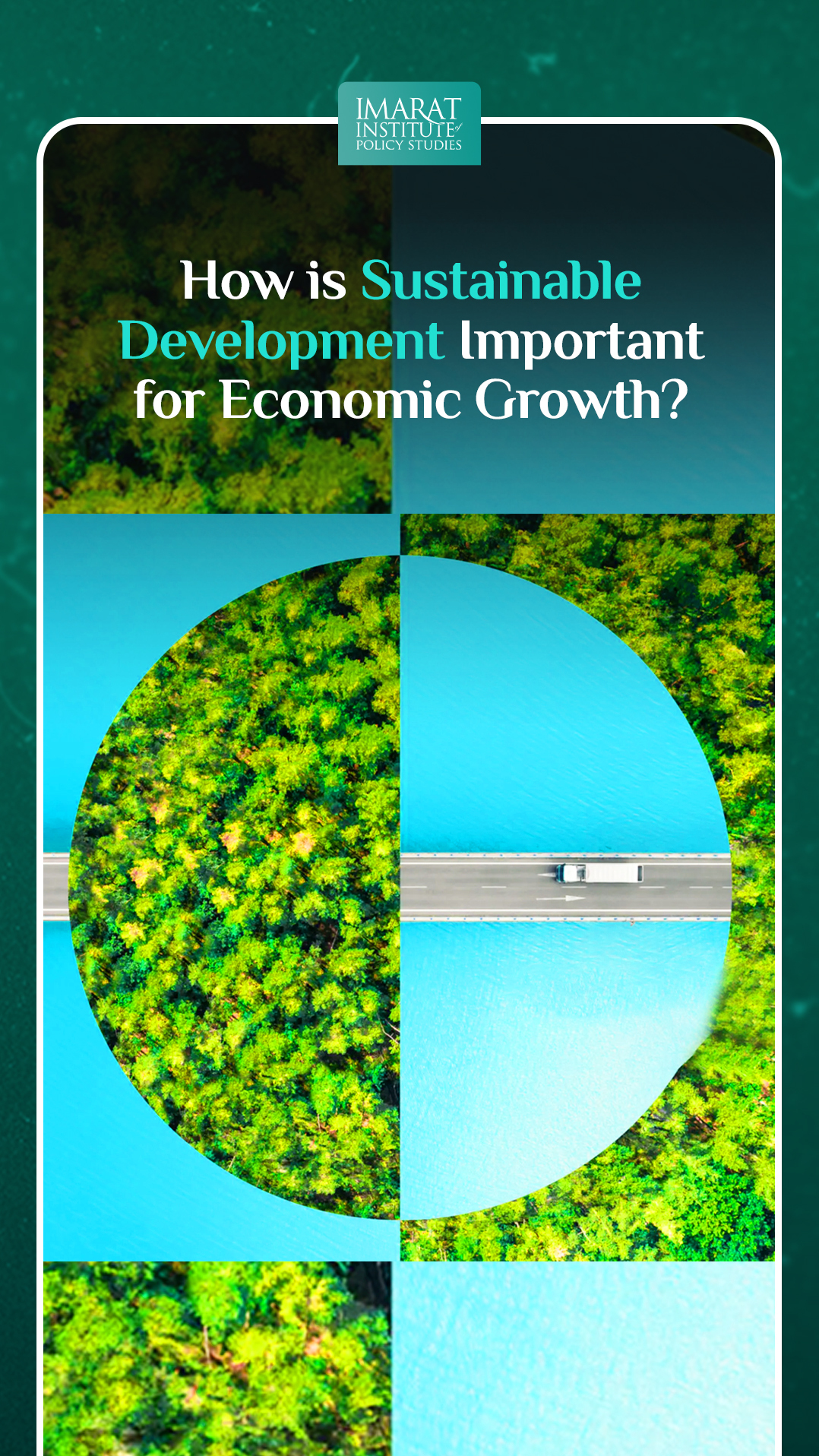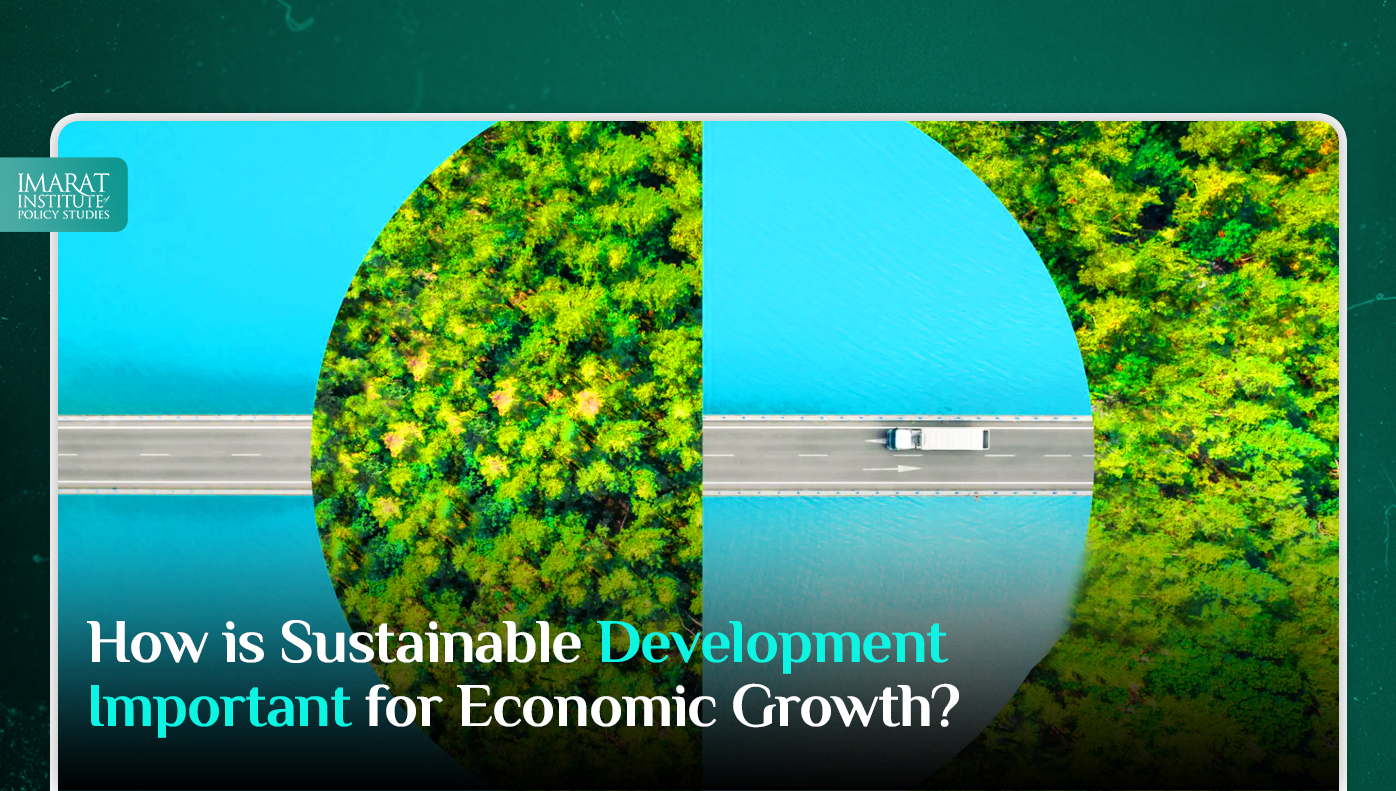Sustainable development is fundamentally important for economic growth because it offers a framework that promotes a balanced approach to environmental protection, social equity, and economic efficiency. This multifaceted approach not only safeguards the planet and improves quality of life but also lays the groundwork for resilient and inclusive economic progress. Below, we delve deeper into the reasons sustainable development is critical for economic growth:
Long-term Resource Management
Sustainable development advocates for the prudent use and management of natural resources to prevent their depletion. By ensuring the sustainable extraction and renewal of resources, economies can maintain the natural capital needed to support various sectors, from agriculture and manufacturing to energy production. This approach helps in avoiding future resource crises that could stifle economic activities, thereby supporting continuous economic growth.
Innovation and Green Technologies
The drive towards sustainability is a powerful catalyst for innovation, particularly in the development of green technologies. This includes advancements in renewable energy sources, such as solar and wind, which can reduce dependence on fossil fuels and mitigate the economic risks associated with volatile energy prices. Additionally, sustainable agriculture techniques and water-saving technologies can improve food and water security, critical components of global economic stability. These innovations not only create new industries and jobs but also enhance productivity and competitiveness in existing sectors.
Cost Reduction through Efficiency
Sustainable practices often lead to significant improvements in efficiency, particularly in energy use, water consumption, and waste management. For businesses, this means lower operational costs and higher profitability. Economies that adopt these practices on a wider scale can benefit from reduced environmental remediation costs and a healthier workforce, contributing to lower healthcare costs and improved productivity.
Social Inclusion and Economic Stability
Incorporating social equity into the economic growth model ensures that development benefits are widely shared across the population. This includes providing access to education, healthcare, and employment opportunities, particularly for marginalized groups. An inclusive approach to economic development helps in building a more cohesive society and a more robust consumer base, driving domestic demand and fostering a stable economic environment conducive to growth.
Environmental Risk Mitigation
Sustainable development strategies are key in reducing the risks associated with environmental degradation and climate change. These risks include increased frequency and severity of natural disasters, loss of biodiversity, and the impacts of pollution on public health. By mitigating these risks, economies can avoid the substantial costs associated with disaster response and recovery, environmental cleanup, and healthcare, thereby ensuring a more stable and predictable economic landscape.
Global Market Access and Competitiveness
In the global economy, sustainability credentials are increasingly becoming a competitive advantage. International markets and trade agreements are favoring environmentally friendly and ethically produced goods and services. By adopting sustainable practices, businesses can enhance their access to these markets, meet consumer demand for sustainable products, and stay ahead of regulatory changes, opening up new growth opportunities.
Investment Attraction
Sustainability is becoming a key factor for investors when assessing where to allocate capital. Sustainable projects and businesses are often seen as lower-risk investments because they are less likely to face environmental liabilities, regulatory fines, or social backlash. By prioritizing sustainable development, economies can attract a larger share of global investment flows, including green bonds and other financing mechanisms dedicated to sustainable projects.
Resilience and Adaptability
Finally, sustainable development enhances the resilience and adaptability of economies to external shocks. By diversifying energy sources, preserving ecosystems that provide essential services, and fostering social cohesion, economies can better withstand challenges such as energy shortages, environmental disasters, and social unrest. This resilience is critical for maintaining steady economic growth in the face of global uncertainties.
Conclusion
The importance of sustainable development for economic growth is clear and multifaceted. It offers a pathway to a future where economic activities are not only more resilient and inclusive but also capable of sustaining prosperity for generations to come. By embracing sustainable development principles, societies can unlock new opportunities for innovation, investment, and long-term economic stability.
This article is written by Radma Nouman. Radma is a research analyst at the Iqbal Institute of Policy Studies (IIPS).



Leave a Reply